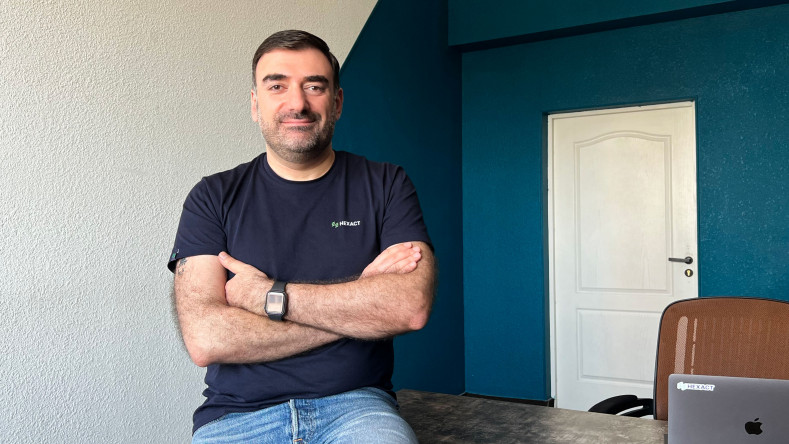
5 times startup founders might need to say no
An article of Stepan Aslanyan, CEO and co-founder of Hexact, has been published on Forbes. The full article is provided below.
"Throughout my career as a serial entrepreneur, I have had many failed experiments and startups. When asked what the critical factor for a successful startup is, I always answer, “The ability to say, ‘No.’” This is an integral part of any founder’s job description. Getting caught up in time-consuming tasks that won’t deliver results or pivoting for short-term cash flow are horrible mistakes I’ve made because I wasn’t bold enough to simply say no. In this article, I’ll unpack how and why saying no in certain situations is crucial for your success.
1. When An Employee Isn’t The Right Fit
The hiring process at a startup is always hectic. You’re trying to recruit the best and brightest, but you need to assess fit in a blink of an eye. Sometimes that can lead to hiring people who ultimately don’t work out. At a certain point, you have to be comfortable saying, “No, this isn’t a good fit anymore.”
This is an understandable, albeit uncomfortable, issue. But if you wait too long to resolve it, the ripple effects could impact your company’s performance for years to come. The key in this situation is quickly accessing your needs and amicably parting ways with the employee.
2. When You’re Considering Investors
Throughout my career, I’ve learned that closing a deal with a venture capital financing or an investor is a lot like getting married. There’ll be ups and downs, but as long as you are on the same page, you should be able to move forward and grow. However, it can be tricky to say no to funding, even if you’re not sure a certain investor can add much value to your business. Don’t be swayed by the numbers. Consider which investors will support your business goals and mission.
3. When You And Your Partners Disagree
The cofounder relationship is a very unique beast. On one hand, you know each other very well—you might even be friends. On the other hand, running a business requires making tough decisions that aren’t influenced by interpersonal relationships. Choosing a strategy, process or other major operational factor just to save face with your partners, rather than going with the best option for your company’s growth, can quickly become a problem. I’ve seen how too many cooks in the kitchen can bring down successful startups.
When you are founding the company, have an open and honest discussion with your partners about who has the final call—especially when you don’t agree. Don’t be afraid to reference that agreement regularly while building your business and when the time comes to say no to a partner’s idea. While it’s important that everyone is heard, it’s vital to know who gives final approval.
4. When A New Product Isn’t A Good Idea
Most successful startups pivot many times before they hit it big. This means developing new solutions is necessary for success. However, switching your team’s focus on a new product needs to be the right call. You have to be sure it falls in line with your startup’s goals.
This is where a problem-first strategy comes into play. Before committing, have a mental checklist of elements that any potential product must have if it’s going to help solve the problem your company wants to address. If a new product can move you closer to solving that problem, then green light it. If not, get rid of it at the ideation stage, so you don’t waste any precious resources.
5. When You Can’t Take On A New Client
This is probably the hardest “No” you’ll encounter as a founder. The old saying, “The customer is always right,” is not quite relevant in the face-paced environment of 21st-century startups. If your strategy is to grow at scale, that means any process that isn’t scalable is a no-go. This can mean having to pass on larger clients.
I’ve had to turn down a significant boost in revenue because servicing that client would require a change of focus within my company. It would’ve required dedicating resources in a way that was simply off strategy for me. Though we lost short-term cash flow from this decision, it ultimately allowed us to use our resources to scale other areas of the business, allowing for exponential growth.
The word “no” is the secret weapon of any successful founder. You might make some enemies along the way, but that’s business. The quicker you realize it’s okay to step away from situations that don’t serve you, the quicker you can focus on what really matters: growing your business."
Newsfeed
Videos






























